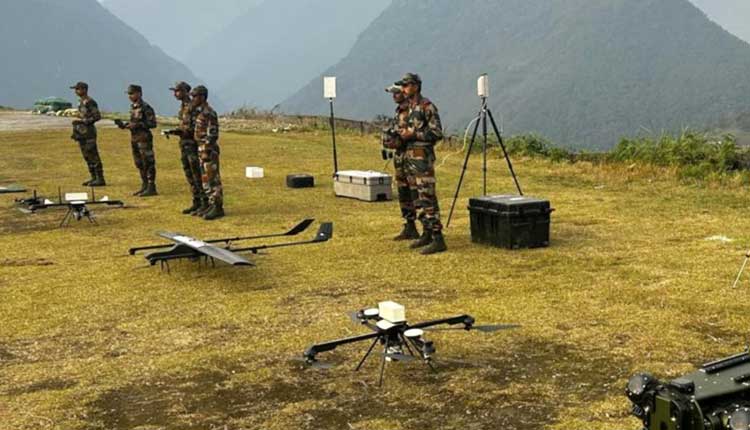Itanagar: In a major step towards ensuring operational readiness, the Spear Corps of the Indian Army successfully conducted an exercise in the forward areas in Arunachal Pradesh, demonstrating the seamless integration of new-generation equipment and weapons, officials said.
Defence spokesman Lt Col Amit Shukla said that the exercise was conducted signifying the seamless integration of new-generation equipment (NGEs) and New Generation Weapons (NGWs), reinforcing its focus on the rapid transformation under the banner of the ‘Year of Technology Absorption and Year of Transformation’.
He said that the field exercise was conducted in rugged and mountainous terrain to operate effectively in challenging conditions with the primary focus on enhanced mobility, Real-time Intelligence, Surveillance and Reconnaissance (ISR) and Advanced Communication systems.
These elements are crucial to developing a swift, silent, and smart tactical force capable of responding decisively in technology-driven battlefields, the spokesman said.
He said that by employing state-of-the-art platforms and modern combat systems, the exercise emphasised faster decision-making, seamless information sharing, and synchronised battlefield awareness.
According to Lt Col Shukla, these capabilities significantly enhanced the operational agility of the troops, reaffirming the Indian Army’s commitment to technological advancement and battlefield innovation. This exercise serves as a testament to the readiness of the Army to meet the dynamic challenges of modern warfare.
The Indian Army continues to drive transformation through innovation, with a clear emphasis on enhancing jointness, adaptability, and combat effectiveness.
A post on the Spear Corps’ X handle said: “Spear Corps warriors successfully incorporated state-of-the-art equipment during a training exercise in forward operational areas. The exercise focused on enhanced mobility, Real-time Intelligence, Surveillance, Reconnaissance and Advanced Communications, thus leveraging technology for adept operational planning.”
(IANS)
















